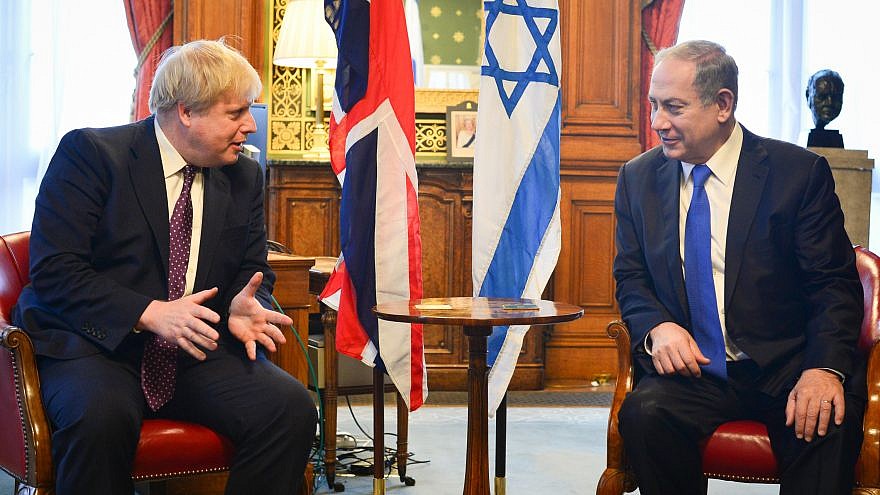LONDON—In August 2014, Boris Johnson, who was then mayor of London, described himself as a “passionate Zionist” and declared Israel as a “great country.”
Speaking on LBC radio, Johnson, who on Tuesday won the race to lead Britain’s governing Conservative Party and to become the country’s next prime minister, said: “I am a passionate Zionist. I am a supporter of Israel. I believe in its existence. I’ve been on a kibbutz for heaven’s sake.”
In 2015, on a visit to Israel, he praised the country for “the audacity, the bravery, the willingness to take risks with feats of outrageous derring-do.”
Speaking in the House of Commons on the centenary of the Balfour Declaration, Johnson said in 2015: “A century after those words were written, I believe that the Balfour Declaration paved the way for the birth of a great nation. The State of Israel has prevailed over every obstacle, from the harshness of nature to the visceral hostility of its enemies, to become a free society with a thriving and innovative economy and the same essential values that we in Britain hold dear.”
His strong pro-Israel comments led to part of his visit to Ramallah to be cut short. In 2015, Johnson had been expected to meet with a Palestinian youth group, which cancelled its invitation after his comments on the BDS movement. He repeatedly criticized calls for a boycott of Israeli goods, describing the campaign as “completely crazy” and promoted by a “few lefty academics” in corduroy jackets pursuing a cause.
The victory is a triumph for the 55-year-old Johnson, an ambitious but erratic politician whose political career has veered between periods in high office and spells on the sidelines.
However, as foreign minister, Johnson has been critical of Israel’s military action in Gaza. In 2014, he described “Operation Protective Edge” against Hamas as being “disproportionate.”
He said then: “Israel has a right to respond. Israel has a right to defend itself. Israel has a right to meet force with force. I absolutely agree with that, but all I was saying is I believe in Israel. I support Israel. I will always support Israel. I just joined with those who say ‘I want the Israeli response to be proportionate.’ ”
Johnson supports the British government and the European Union’s long-standing policy of a ‘’two states for two peoples’ solution to the Israeli-Palestinian conflict.”
Regarding Iran, Johnson has emphasized that the United Kingdom believes that the 2015 nuclear deal, or Joint Comprehensive Plan of Action (JCPOA), signed by world powers with Tehran is the best vehicle to deal with Iran’s regional activities, regretting the U.S. withdrawal from the deal in May 2018.
But he recently told the London Jewish News that he was prepared to restart sanctions on Iran and, as prime minister, he would do everything in his power to “constrain Iran’s conflicdisruptive behaviour in the region.” Johnson also said the Western allies should focus on diplomacy to prevent Iran from building a nuclear weapon.
He will be installed as prime minister in a formal handover from Theresa May on Wednesday.
The victory is a triumph for the 55-year-old Johnson, an ambitious but erratic politician whose political career has veered between periods in high office and spells on the sidelines.
He has vowed that Britain will quit the European Union on the scheduled date of Oct. 31, even if it means leaving without a divorce deal.


























